2021 was a time of expansion of plantings and programs at the POP Learning Orchard. POP’s vision for the one-acre demonstration orchard is to provide a space for education, inspiration and interaction with the environment. Through the time and efforts of the POP team, weekly volunteers, and our supporters, the orchard has expanded with a variety of new annual crops, fruit and nut trees, perennial herbs and flowers as well as new infrastructure additions that will continue to support the mission of becoming an educational hub for best ecological orchard care practices.
“Our cities should be hubs for growing food. POP is doing exactly that kind of work in my neighborhood and I want to find ways to give back to the community.”
-POP Lead Orchard Volunteer
POP staff and volunteers again expanded the diversity of perennial agriculture at the POP Learning Orchard in 2021, with new plantings of elderberries, hazelnuts, chokeberries, medlar, black currant, buffaloberries, grape hollies, rugosa roses, and more. In summer, POP Orchard Director Michael led a project to build a beautiful new arbor for growing grapes and kiwiberries, as well as trellises for blackberries and bird protection for blueberries. With the support from the Hardy Plant Society, a shade garden featuring diverse edible, medicinal, and pollinator-friendly perennials was planted in the fall.
Providing fresh local produce donations to emergency food services continued to be a priority at The Learning Orchard. While creating a crop plan, Orchard Director Alkebu-Lan Marcus was determined to double the donations made in 2020 by adding new rows in-between the fruit trees, a method known as alley cropping, and planting prolific crops such as sweet peas, black-eyed peas, peppers, basil and ground cherries. In total, 2335 pounds of produce was grown and donated to families in need via Food Not Bombs and directly in the hands of the community through The People’s Fridge on 52nd St. including:
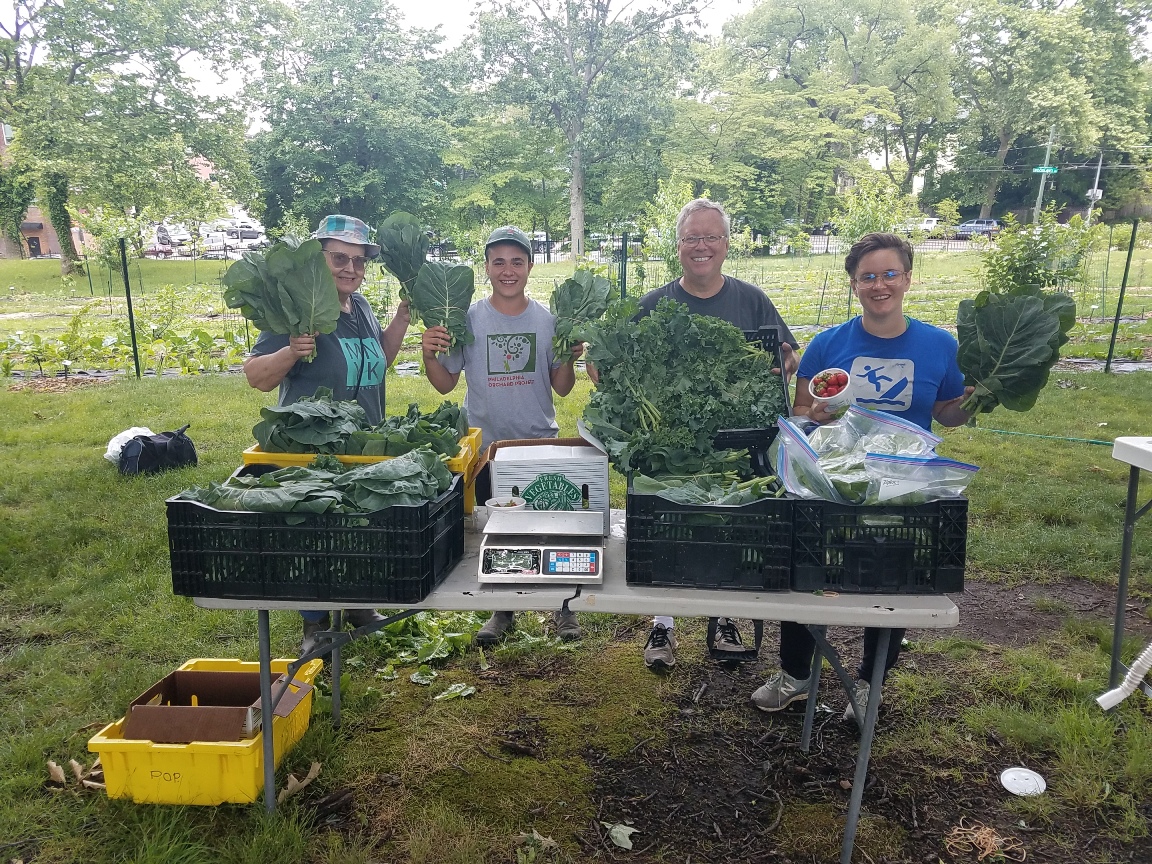
648 pounds of butternut squash
487 pounds of collard greens
436 pounds of watermelon
201 pounds of peppers
95 pounds of black-eyed peas
82 pounds of okra
57 pounds of string beans
56 pounds of lettuce
58 pounds of eggplant
44 pounds of scallions
32 pounds of kale
21 pounds of ground cherries
18 pounds of basil
13 pounds of spinach
16 pounds of broccoli greens
6 pounds of peas
4 pounds of strawberries
3 pounds of broccoli crowns
and counting!
Along with growing food for donation, POP continued the ongoing partnership with True Love Seeds and grew The Landreth Stringless Bush Bean and Clemson Spineless Okra at the orchard for a second season, along with new crops such as Palestinian Kusa Squash and Ground Cherries.
Fresh produce was not the only edible abundance at the orchard- with the generous help the Philadelphia Beekeepers Guild, a donation of bee hives and equipment were provided and Orchard Director Alkebu-Lan Marcus worked with the bees as lead beekeeper. In October, over 1 gallon of honey was harvested!
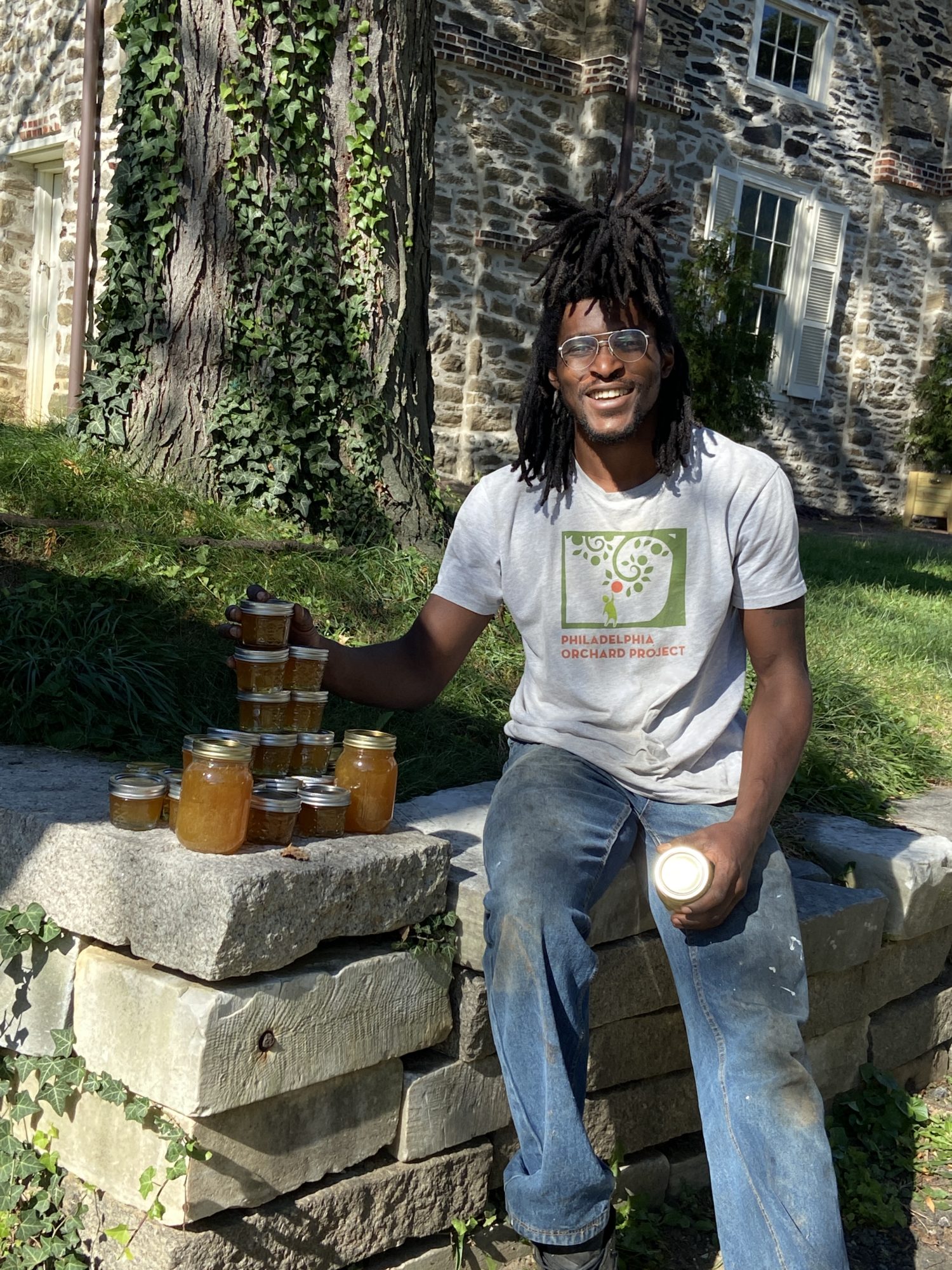
The edible plant nursery at The Learning Orchard also had new infrastructure put in place during the last year. With the help of a small volunteer team, the dugout on the softball field next to the nursery was converted into a solar shed that now powers the irrigation system in the nursery as well as the compost tea brewer. In fall 2021, a shade structure was erected with the help of Powercorps PHL, to provide protection from the sun for volunteers and shade plants in the nursery. In 2022, funding from the State Department of Agriculture and The Junior League of Philadelphia will go towards high tunnels that will provide a space for POP to expand nursery materials grown for other community orchards and demonstrate growing zone 8 perennial crops in our local environment.
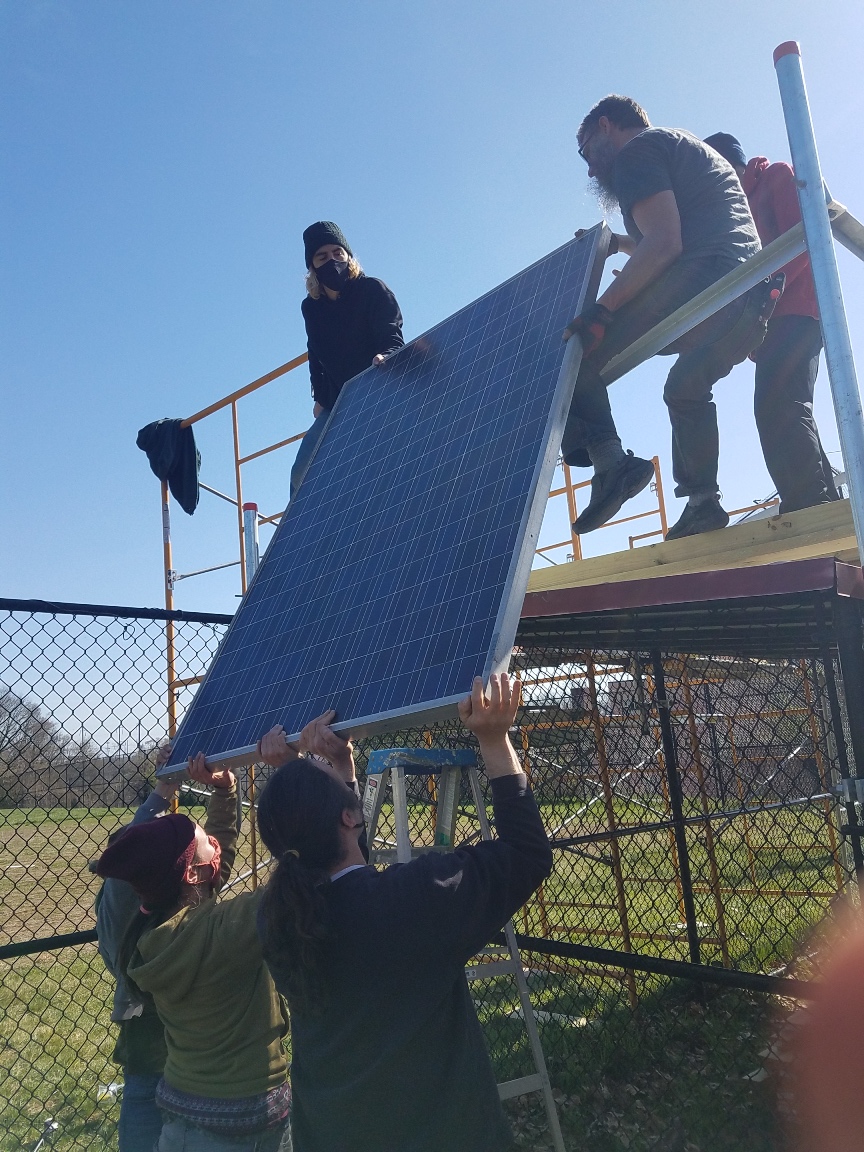
As the pandemic continued and communities adapted new ways to safely come together, The Learning Orchard opened its gates as a space to learn more about POP’s mission, tour the orchard, get hands on with the land and meet new people. Over 140 volunteers came out to the orchard for weekly work and harvest days to plant seeds, weed, mulch, assist with building infrastructure, repot plants in the nursery, harvest produce and seeds and engage in fellowship over a shared enthusiasm for putting hands to soil. Events such as the annual Orchard Celebration and biannual plant sale made a warm welcomed return and workshops led by POP board, staff and collaborators offered educational opportunities in the space as well.
A new monthly workshop series was also piloted at the POP Learning Orchard in 2021, led by a range of community educators on topics including:
- maple sugaring
- herbal salves
- mushroom inoculation
- fire cider
- elderberry and chokeberry syrups
- apples in jars
We look forward to continuing to expand the programs and impact of the POP Learning Orchard in years to come!
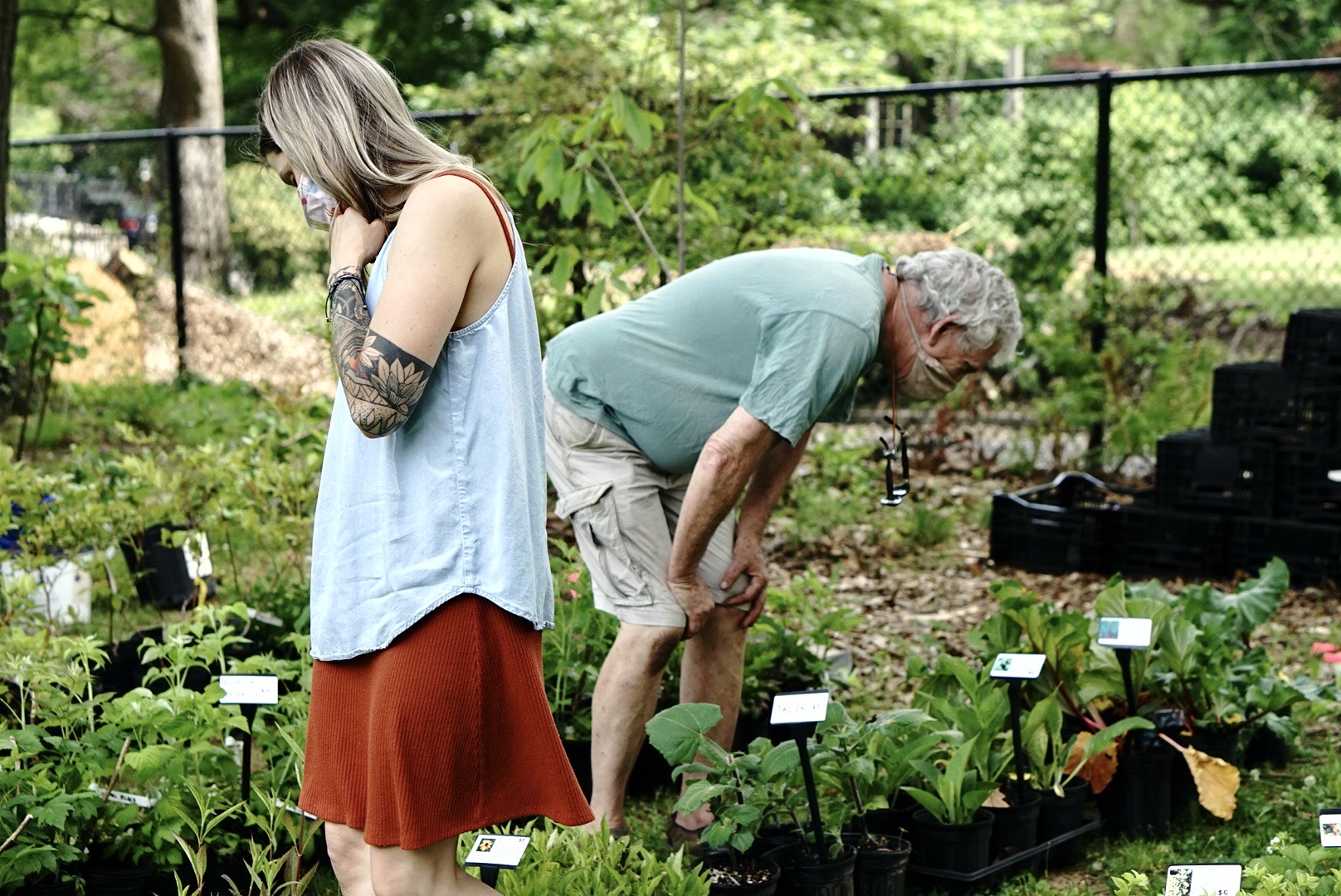
ORGANIZATION BACKGROUNDS
The Woodlands’ 54-acre undulating landscape is at once a one-of-a-kind 18th-century English pleasure garden, 19th-century rural cemetery, and a modern green oasis for its neighbors in bustling University City and West Philadelphia. The Woodlands was designated a National Historic Landmark District in recognition of its unique history and rich resources. Today, the mission of The Woodlands is to enrich the lives of area residents and visitors by serving as a hub for activities and educational programs that interpret, celebrate and make available to the public The Woodlands’ historic buildings and rich and tranquil green space. More information about The Woodlands is available via the organization’s website: www.woodlandsphila.org or on Instagram, Facebook and Twitter @woodlandsphila
The Philadelphia Orchard Project was founded in 2007 with a mission to plant and support community orchards in the city of Philadelphia, improving access to nutritious food and creating beautiful and bountiful green spaces. Orchards, primarily located in low-wealth neighborhoods, are owned, maintained, and harvested by the community. POP orchards contain a variety of fruit and nut trees, berry bushes and vines, herbs, pollinator gardens, and other useful and edible perennials. Follow POP on Facebook @PhiladelphiaOrchardProject, or on Instagram and Twitter @phillyorchards.
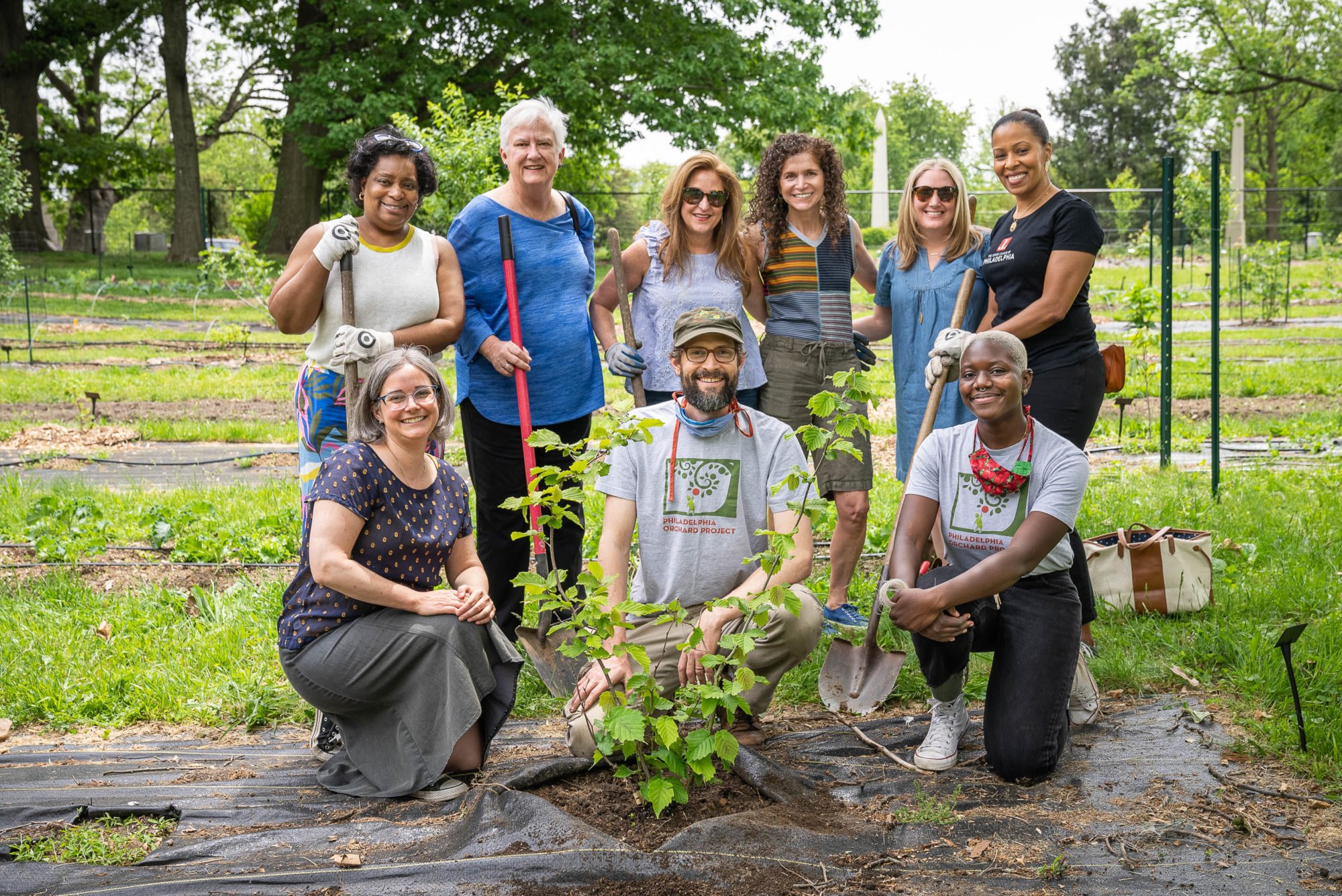
Founded in 1912, the Junior League of Philadelphia (JLP) is an organization of women committed to promoting voluntarism, developing the potential of women, and improving the community through the effective action and leadership of trained volunteers. Its purpose is exclusively educational and charitable. The JLP is also a member of the Association of Junior Leagues International (AJLI), with 291 Leagues globally. The JLP is the primary sponsor of the POP Learning Orchard at The Woodlands.
This blog post was prepared by POP Orchard Assistant Sharon Appiah in collaboration with Co-Executive Director Phil Forsyth.
SUPPORT US! If you found this entry useful, informative, or inspiring, please consider a donation of any size to help POP in planting and supporting community orchards in Philadelphia: phillyorchards.org/donate.